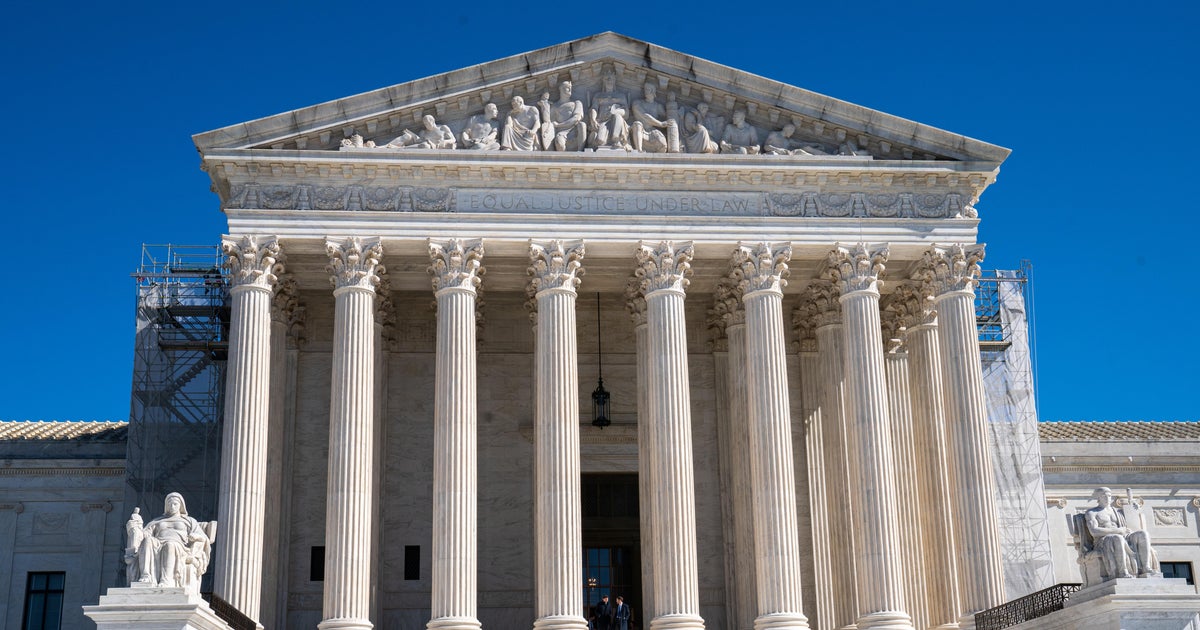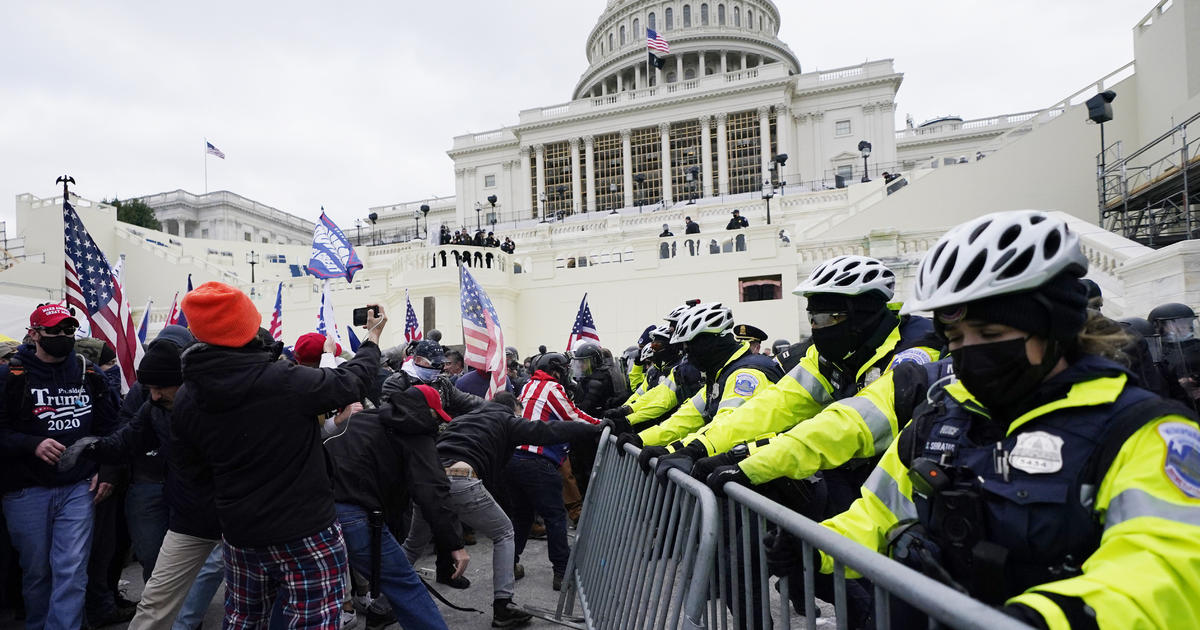Supreme Court rejects GOP bids to block congressional maps in North Carolina, Pennsylvania
Washington — The Supreme Court on Monday rejected separate requests from Republicans in North Carolina and Pennsylvania to block the use of new congressional maps adopted by state courts for the 2022 election cycle, allowing the court-drawn voting lines to stay in place.
In both cases, the justices declined the emergency requests from GOP officials to set aside lower court decisions approving the court-drawn districts, which replaced the electoral maps adopted by the Pennsylvania and North Carolina state legislatures, both controlled by Republicans.
There were no noted dissents from the justices in a brief order declining the emergency request from GOP officials involving Pennsylvania's new voting lines. But in the North Carolina case, three conservative justices, Samuel Alito, Clarence Thomas and Neil Gorsuch, said they would have halted the use of the court-approved congressional map.
In a dissent, Alito, joined by Thomas and Gorsuch, said the Republican state lawmakers challenging the new voting boundaries will be "deprived of their constitutional prerogative to draw the congressional map in their State, and the public interest will be disserved if the 2022 congressional elections in North Carolina are held using districts that we eventually determine were unconstitutionally imposed."
The orders from the Supreme Court will benefit Democrats in the two key battleground states, as they decline to put back in place the state legislature-approved maps that were more favorable to Republicans for the 2022 midterm elections. Democrats are working to keep their hold of a slim majority in the House.
In the dispute involving North Carolina's newly drawn congressional districts, the GOP-led General Assembly adopted new district lines after the state gained a seat in the U.S. House that gave Republicans an advantage for 10 of North Carolina's 14 seats. Republicans currently hold eight seats and Democrats hold five seats.
The North Carolina Supreme Court, though, rejected the map, finding they constituted unconstitutional partisan gerrymanders, and sent the case back to a state trial court for further proceedings.
After rejecting voting boundaries for congressional elections redrawn by the General Assembly, the North Carolina trial court approved a new map created by a group of special masters and assistants, which gave Republicans six seats in their favor to Democrats' four, according to an analysis from the Campaign Legal Center. Four other districts are more competitive.
Republicans in the state legislature challenged the use of the court-drawn maps, arguing North Carolina's high court decided the "manner" in which the state's congressional elections will be held, usurping the power granted to the state legislature under the Constitution's election clause.
"If a redistricting process more violative of the U.S. Constitution exists, it is hard to imagine it," the GOP state lawmakers told the Supreme Court in their emergency request for intervention.
They continued: "This court should put a stop to the North Carolina judiciary's usurpation of the General Assembly's specifically enumerated constitutional authority to regulate the manner of congressional elections. Anything less will surrender North Carolina's 2022 elections to a congressional map that palpably violates the U.S. Constitution, rewarding judicial activism of the most brazen kind."
In the Pennsylvania case, Governor Tom Wolf, a Democrat, vetoed a map approved by the GOP-led General Assembly, while a group of voters challenged the new lines in state court. The Pennsylvania Supreme Court intervened and ordered the use of a congressional map drawn by the state judiciary.
The state lost a House seat following the 2020 census, and the court-approved map gives Republicans nine seats to Democrats' eight.
"The state's election officials intend to implement this court-selected map and judicially altered calendar for the upcoming primary election," Pennsylvania officials told the Supreme Court. "But this course of action is flagrantly unconstitutional and should be swiftly enjoined."



